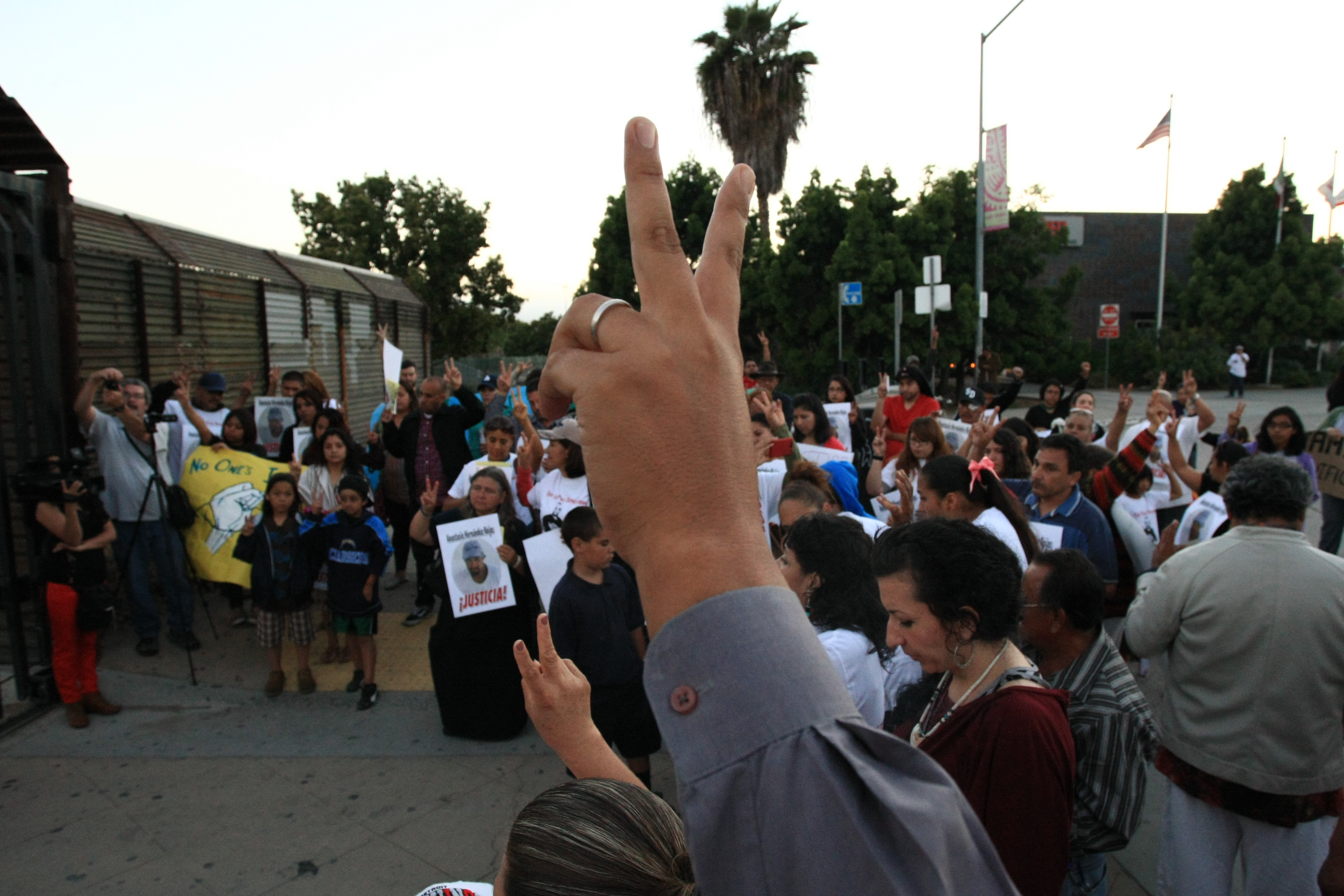
In 2013 family and friends of Anastasio Hernández led a protest and vigil at the San Ysidro port of entry in remembrance of the third anniversary of his death at the hands of CBP/Border Patrol. Tudor Stanley / AFSC
This post was updated on January 4, 2019, to reflect recent events.
The border wall is at the heart of the current government shutdown, despite significant opposition to the idea.
The construction of the wall would be a human rights disaster. The existing militarization of the U.S.-Mexico border has already contributed to the deaths of thousands of migrants fleeing violence and poverty. Further militarization would not only cause further harm to migrants, it would also exacerbate the degradation of the environment, erode U.S.-Mexico relations, destroy economic vitality near and across the border, and cost billions.
Opposition to this inhumane project is coming from many directions, and could turn this impending calamity into an organizing opportunity among unlikely allies. Here’s a breakdown on how public opinion is shifting:
The border wall idea is unpopular.
In July 2015, an Economist/YouGov poll showed modest support for a border wall, 46 percent in favor of the idea and 35 percent opposed. By the end of August, 48 percent of people opposed it. Even Fox News polling has shown declining support for a wall, from 50 percent in November 2015 to only 34 percent in December 2016, after the election.
Many people for a variety of reasons object to the wall.
Vocal resistance to the idea is coming from unlikely corners, and immigration framing research shows that messages that come from unexpected sources can be more effective at shifting public opinion.
- The mayor of Laredo, the Texan border town, strenuously objects to the wall. He believes that a wall would harm the relationship with Mexico, destroy his city’s economy, and irreparably harm the environment, wildlife, and livestock that live in the borderlands.
- None of the 38 Texans in Congress fully endorse the wall, which would affect Texas more than any other state. Several expressed concern about the complications that would unfold if the federal government seized privately owned land to build a wall.
- Republican Congressman Will Hurd also strenuously objects to building a wall through his district which includes 800 miles of border.
Walls harm local communities.
The border wall has been presented as a physical symbol of strength against a perceived threat. Historically, though, physical walls have built up a sense of insularity and isolation, manifesting anxiety and conflict on both sides that often outlast the walls themselves. Last year, the Mayor of Berlin implored the then-new U.S. president not to build the wall. His city bears the scars of physical division and knows well “how much suffering was caused by the division of an entire continent with barbed wire and concrete.” AFSC has worked for many years to stop border militarization and to promote acts of welcome to the people who are threatened by it. You can read more about this ongoing work here and here.
Today it is extremely important to resist the idea of the border wall and any further militarization of the border in order to build more inclusive, vibrant communities. While the wall’s opponents may have different priorities and reasons for opposing it, the good news is that many different people agree that building the wall is a bad idea and do not support it.
If you agree, take action with us. Sign our petition to respect the right to migrate or call Congress to tell them to defund ICE and CPB. Together we can create the world we want - a world where all people are treated humanely.